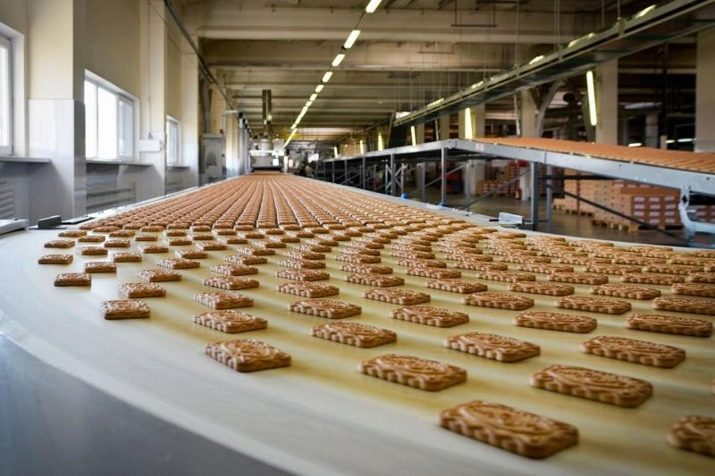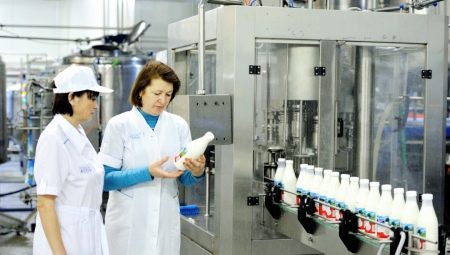Product release is a very useful and exciting area of human activity. But it is not necessary to engage in specific working manipulations. You can create methods that others will work on and control them. If you are interested in just such a line of activity, it's time to learn all about the profession Technologist of the food industry.
Features
It’s worth starting a description of the profession of a food technologist with the fact that it is impossible to establish the exact moment of its appearance. On the one hand, back in ancient times and the Middle Ages, there were people responsible for tasting the food of various monarchs, their close associates and other high-ranking people. There were especially experienced chefs who controlled the work of other people in the kitchen. On the other hand, all this work was carried out haphazardly and randomly, and most importantly, it did not affect 99% of people.
The true history of food technologists can only be counted from the moment the food production was put on stream.
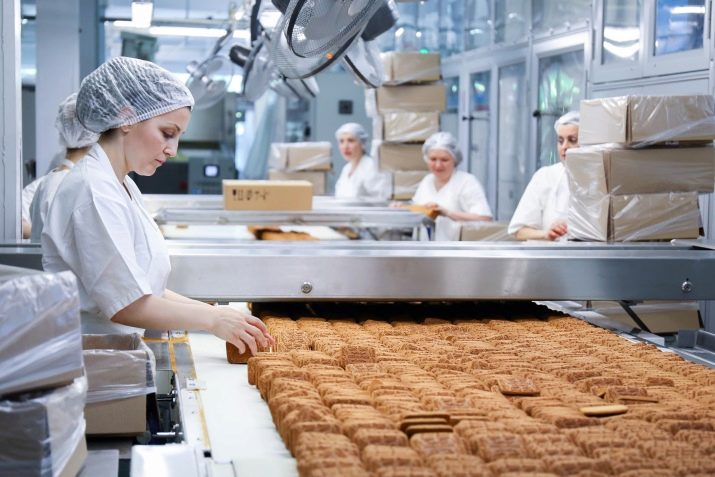
The responsibility of such a specialist is very high. He has to act in a particularly intense mode. Even a slight deviation from the installed technology invariably degrades the quality of the finished goods and can even lead to mass poisoning. Statistical studies have found that only about 30% of food production technologists are men. Experts note that such professionals should:
- work very responsibly and clearly;
- tolerate stressful effects;
- have excellent memory;
- act clearly and calmly in difficult situations, in conditions of time pressure;
- quickly analyze incoming information of various kinds.

A food technologist cannot be one who suffers from any kind of allergy. Also undesirable hormonal and nervous abnormalities. Work will be on a strict shift schedule. It is not always easy to get a job in a small town where the food industry is underdeveloped.
Minus industry there is also a danger of getting problems with the musculoskeletal system, with the respiratory system, and allergies, but such a risk is small.
Food industry technologists can work both separately and in a group of specialists. Most of the work takes place indoors. They require stamina and physical strength. In many cases, a medical book is required.
Professional growth may consist not only in improving status, but also in mastering new methods and techniques of work, additional specializations.
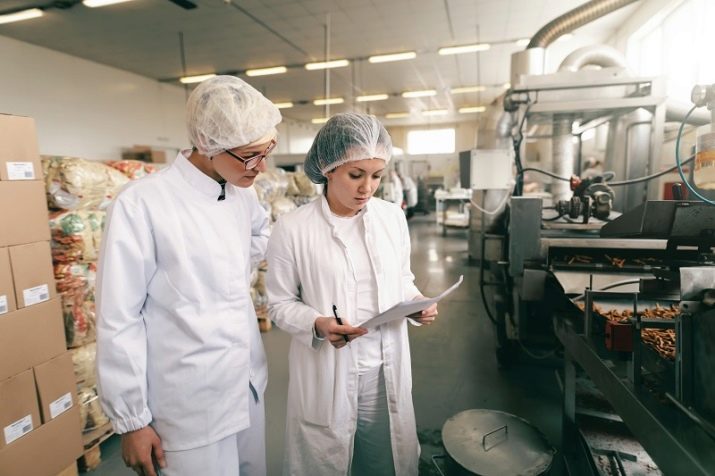
Responsibilities
A typical job description of a chief food technologist indicates that This is a senior level specialist. Usually, he reports directly to the director of the company or the head of the branch or other structural unit. The main responsibilities of this employee are as follows:
- maintaining a safe, rational and economically sound course of food production;
- elimination of all deviations from the norm and immediate elimination of the causes of such deviations;
- minimizing the consumption of raw materials, energy and working time per unit of finished product;
- adaptation of the product range to the urgent needs of consumers;
- the development of new technologies, and if necessary, their creation from scratch;
- assessment of the quality of work directly involved in food production;
- development of the necessary technological documentation and assessment of its perfection;
- participation in the certification of jobs and working conditions for them;
- coordination of all changes in the process.
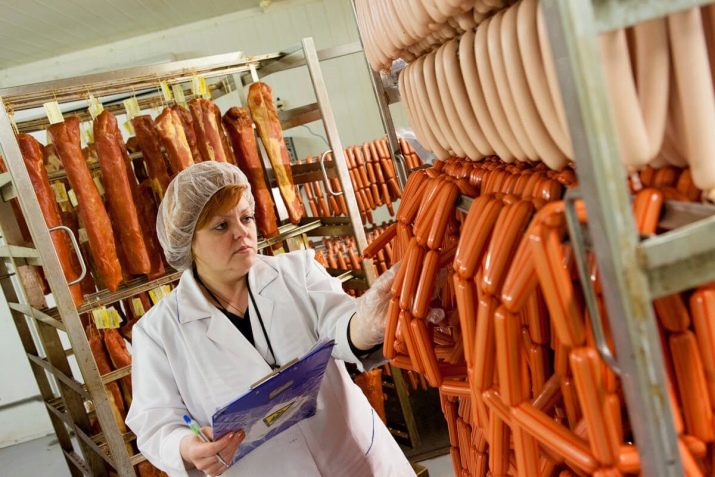
Just a food industry technologist is primarily involved in:
- work with standards;
- drawing up plans for the placement of equipment;
- thinking over the technical equipment of workplaces;
- calculation of production capacities and equipment;
- the creation of programs that will improve the quality of products;
- development of new recipes and their approval;
- preparation of proposals to expand the range and use of new types of raw materials;
- operational control over the characteristics of raw materials, semi-finished products and finished products;
- the search for the causes of marriage and their elimination;
- consideration of all rationalization proposals from downstream employees.
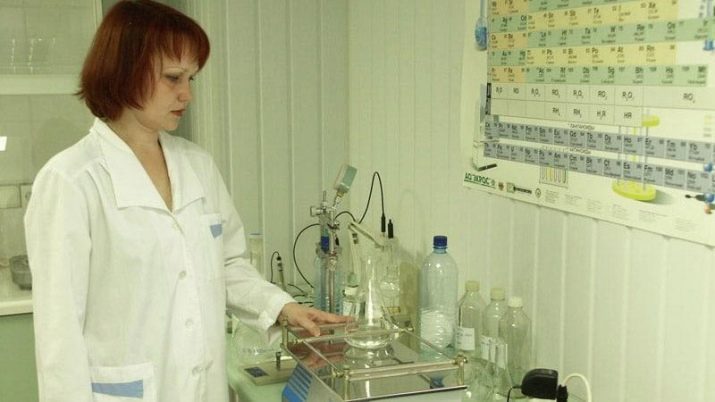
But the list of work that the food industry technologist does does not end there. They also include:
- development and application of automation tools;
- determination of optimal production conditions;
- establishment of work procedures;
- thinking through operational routes for processing raw materials and semi-finished products;
- drawing up technological maps;
- determination of individual norms of consumption of time and quantity of processed products;
- calculation of standards of material costs;
- assessment of the economic efficiency of each individual workplace, operation, production line;
- coordination of documentation with structural units;
- conducting experiments in the field of technology;
- study of advanced experience in other organizations, including abroad;
- consideration of product complaints;
- development of methods for control and verification of products, raw materials and semi-finished products.
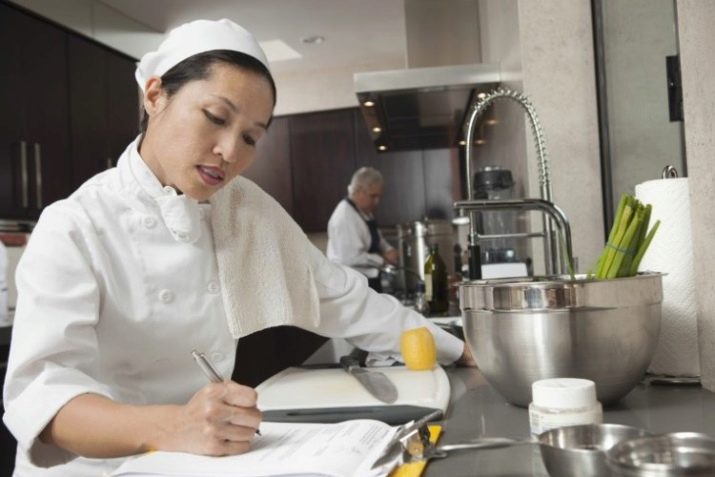
The variety and type of food products determine their individual recipe. You also need to consider the huge role of competition, which forces to improve the process.
The technologist monitors the production chain from start to finish, controls the process of acceptance and packaging, shipping.It is this specialist who is responsible for preparing a particular product for certification.
It is customary to single out the technologists:
- meat and dairy industry;
- confectionery and pasta production;
- fermentation and winemaking;
- canning production;
- baby food.
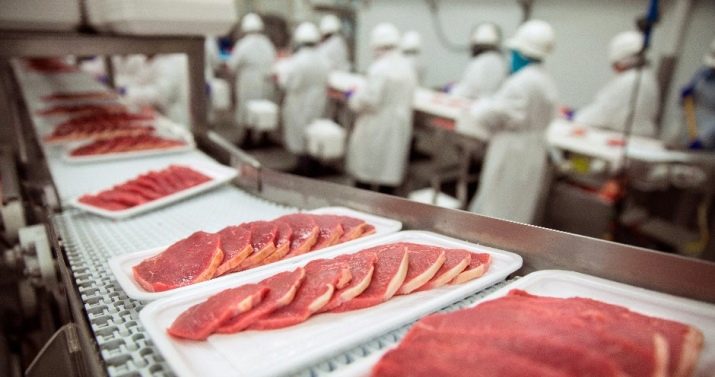
Knowledge and skills
The range of knowledge and skills of a good technologist in the food industry is very extensive. This specialist should thoroughly know how to properly use special equipment. He needs to be prepared to respond correctly to all emerging problems and be able to eliminate them (alone or in conjunction with other people). You will have to figure out how to make the work more efficient and not create any threats. It is necessary to represent the entire enterprise, the entire technological cycle in your mind, and even analyze what can happen to products after release.
An indispensable condition for the normal work of a food production technologist is a deep understanding of the production process and formulation. There are no small things that a specialist could ignore.
Will have to study as it should and established at the state level standards. An indispensable skill is also readiness. master new standards and technologies, working methods.
In addition to these points, you will have to master:
- product range and structure;
- physico-chemical and biological properties of finished products, semi-finished products and raw materials;
- lists of equipment used;
- rules for the preparation of working and technical documentation;
- basic ideas in the field of physics, chemistry, biology, sanitation, which are necessary for work.
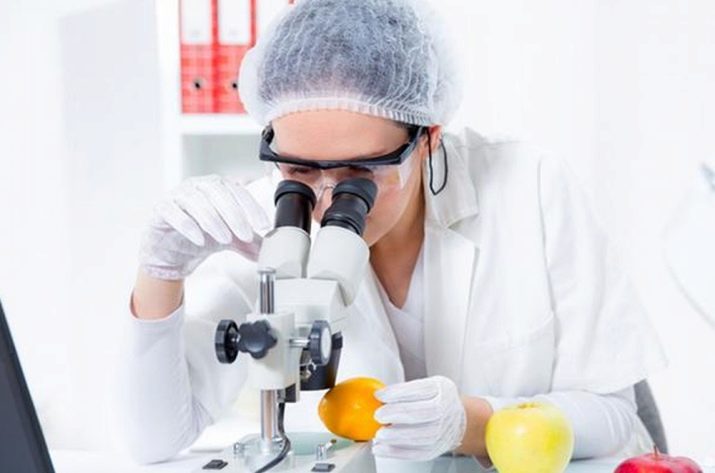
Training
You can study in the specialty of a food industry technologist both in universities and in secondary schools. Such specialists are trained Technical University of Volgograd; it will be possible to learn more at the state university of Sevastopol.
In addition to these educational institutions, it is quite possible to do the following:
- SUSU;
- ITMO;
- RUDN University;
- Russian Agrarian University named after Timiryazev;
- Moscow Academy of Veterinary Medicine and Biotechnology.

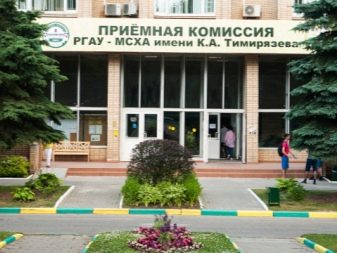
Outside the capital, such professionals are trained:
- Kuban Agrarian University named after Trubilin;
- OmSTU;
- Saratov University named after Vavilov;
- Polytechnic University of St. Petersburg;
- Kalmyk University named after Gorodovikov;
- Ufa Petroleum University;
- Agrarian University of St. Petersburg;
- Far Eastern Fisheries University;
- SKFU;
- Kazan Technological University.
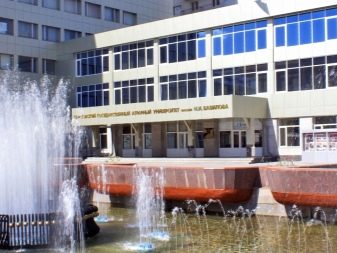

If higher education institutions are not satisfied, you can pay attention to the following options:
- University Polytechnic College at Peter the Great St. Petersburg University;
- educational complex named after Talalikhin (Moscow);
- College of St. Petersburg Agrarian University;
- Technological College of Kazan KNITU;
- Faculty of secondary vocational education of KNITU;
- College of Agribusiness OmGAU;
- College of Finance and Technology of the Vavilov Saratov University;
- College of meat and dairy industry (Omsk);
- College of Industrial Technologies (Ufa);
- Agricultural College (Perm);
- Krasnoyarsk Technological College of Food Industry.
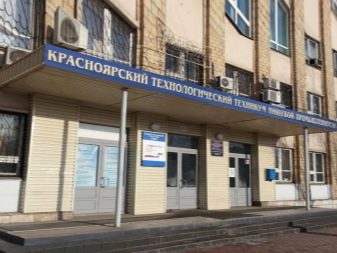
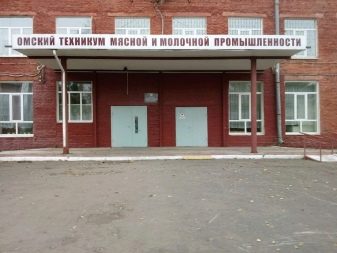
In any case, it is important to know what exams you need to pass to a food technologist. After the 9th grade, in addition to the 2 compulsory GIA exams, you must pass any 2 exams of your choice. Reception is conducted according to the results of the certificate contest, and only the total amount of points matters. After grade 11, you can enter a higher educational institution. The composition of entrance examinations is determined by the program of a particular educational specialization. It can change in every season, so you need to look for relevant information on the university website.
In colleges and technical schools usually cook food service technologists by specialization “catering products” or “technology of bread, pastry and pasta”. Students in addition to the main specialization also receive the skills of a pastry chef, cook or bartender. They usually master the technology of working with flour products, with cold and hot desserts, and semi-finished products.
After college or college, you can enter a specialized higher educational institution. There are waiting for accelerated training programs for bachelors of engineering and technology.
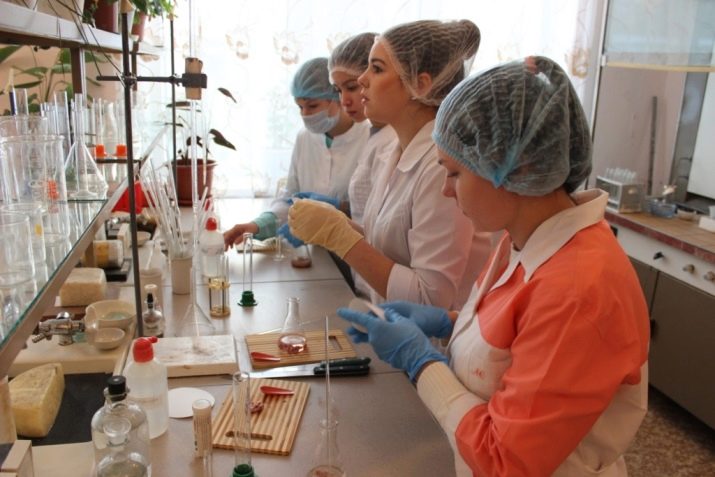
Deserves attention Moscow University of Food Production. He has 3 relevant specialties. In the process of preparation, the university is assisted by large companies in the meat processing industry and other food industries. Special seminars and master classes with the participation of leaders of the global manufacturing market are envisaged. This allows you to significantly expand the chances of finding a job.
A good idea would be to enter Moscow University of Technology and Management. It trains professionals around the food technology industry. The university management constantly takes care of research work and the expansion of patent activity.
Attention is paid internships at leading industry research organizations. Worth considering yet food college number 33. Here they teach the technology of making bread, confectionery. There is also a specialization of the catering technologist proper. In the preparation of the curriculum, great attention is paid to professional modules, mastering all aspects of the work. A significant amount of effort is made to organize production training. The college collaborates with leading companies in the industry, its graduates have already become managers of production and directors of food plants.
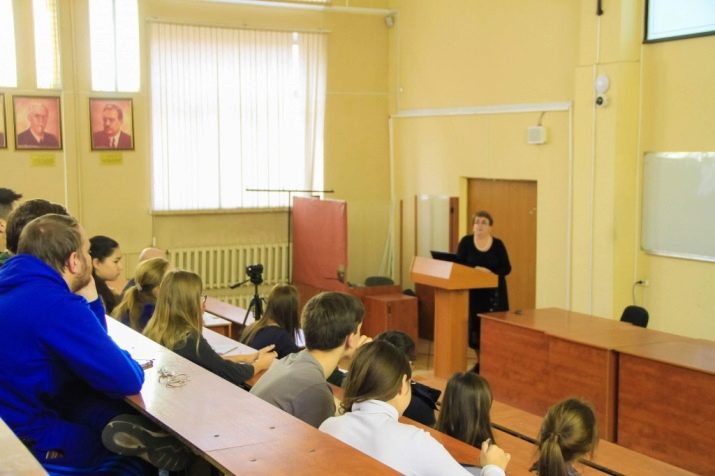
Where does it work?
After graduation from a university, college or technical school, people without experience begin work with positions junior technologists, craftsmen, quality controllers. Often choose the place where the practical training took place. Over time, such a specialist will be able to take the position of senior shift technologist, and then the chief technologist of the enterprise. If you succeed, come to the post production manager or company manager.
Experts note that most often food industry technologists find vacancies in the processing of meat, milk, and baking.
In large cities, the salary level is from 35 to 50 thousand rubles. Such vacancies can be occupied by people:
- working for 1-3 years or more;
- knowing the basic technological processes;
- proficient in laboratory research;
- able to prepare reporting materials of the established sample.

Technologists work at enterprises of various sizes and all forms of ownership. It can be:
- flour mills;
- meat processing plants;
- sugar refineries;
- dairies;
- bakery plants;
- confectionery factories;
- large bakeries;
- fish processing plants;
- large restaurants, cafes and canteens.
